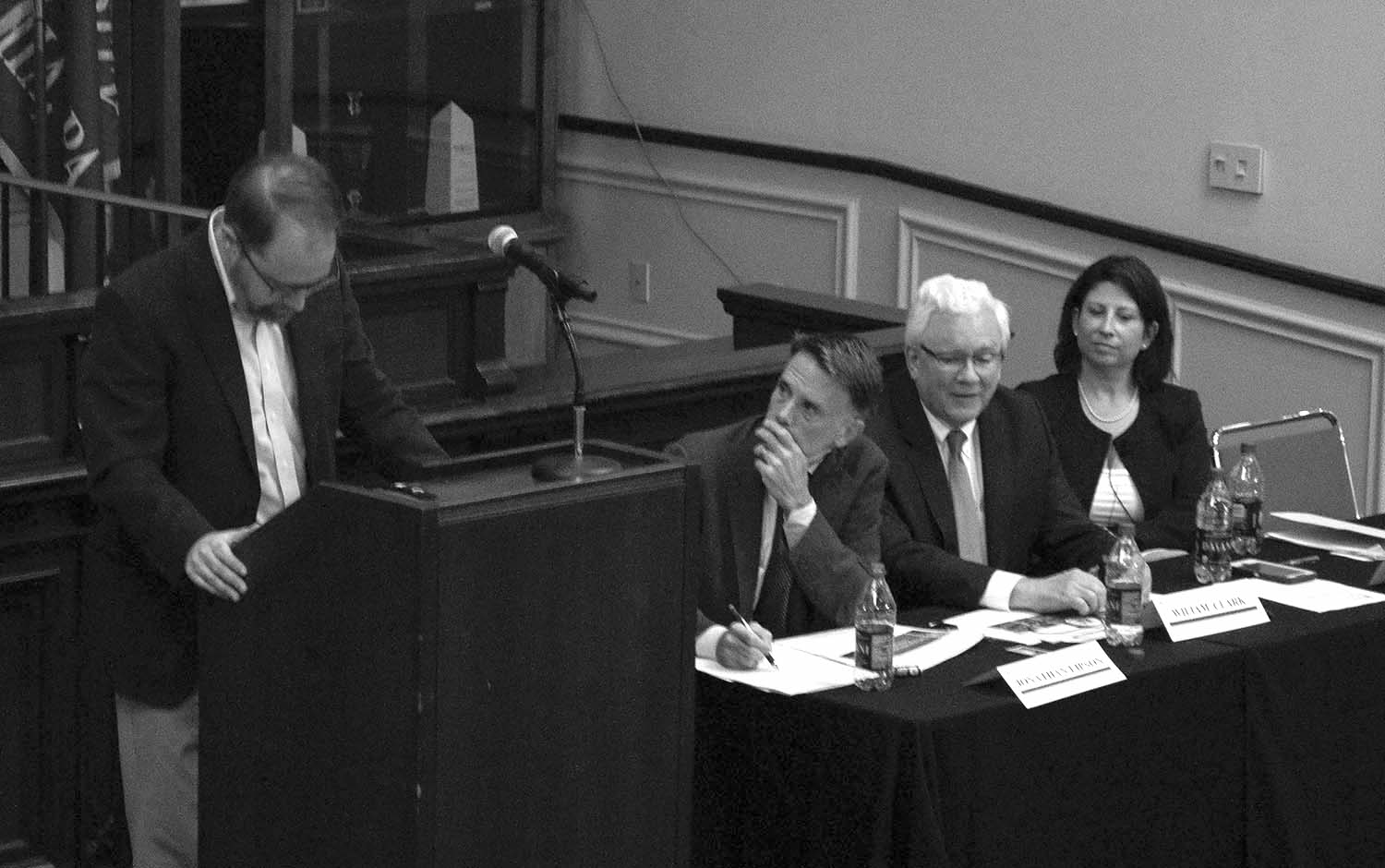Can law make social welfare profitable? Temple Law alumnus William Clark (LAW ‘83), Delaware Representative Melanie George Smith, and Professor Harwell Wells explored this question at the 2018 Harold E. Kohn Lecture on September 17th, 2018.
Clark led the discussion, focusing on the Model Benefit Corporation Act, a model act of which he was a principal drafter, and which has been enacted in 28 states. “Benefit corporations” have recently been in the news, as Senator Elizabeth Warren (D-MA) has proposed creating a federal benefit corporation statute. Representative Smith offered insights from Delaware, and Professor Wells offered a historical perspective.
With Mr. Clark’s model statute, the benefit corporation has become a legally-recognized entity form under state law that protects and allows corporate officers and directors to commit to higher standards of purpose, duty, and transparency in pursuit of true long-term value, sometimes characterized as the “triple bottom line.” This term, coined by British author John Elkington, reflects the social, environmental, and economic goals that a benefit corporation may have, and which generally go against the entrenched thinking behind the purpose of a corporation. Under current economic thinking, corporations are solely meant to maximize shareholder value. In contrast, Elkington believes “only a company that produces a triple bottom line is taking account of the full cost involved in doing business.”
The widespread adoption and potential value of the model statute have led to the introduction of the Accountable Capitalism Act sponsored by Senator Warren, which would require companies with $1 billion or more in annual revenue to commit to the triple bottom line in addition to other related standards and requirements. Hailed by some as a beneficial protection against the harmful effects of corporations’ activities, Mr. Clark worried that the federalization of a largely state issue may lead to unintended blowback to an already successful movement.
Whatever one’s politics are, though, Mr. Clark urged those attending to focus on how benefit corporations can help solve issues that transcend political lines. Specifically, Mr. Clark provided as examples the flatlining of poverty and deep poverty in inner cities throughout the country and pollution of the world’s oceans including the Great Pacific Garbage Patch.
In addition to the 28 states that have adopted Mr. Clark’s model statute, seven other states, as well as Washington D.C. and Puerto Rico, have enacted some form of benefit corporation statute or similar legislation. Being the “Corporation Capital of the World”, Delaware adjusted Mr. Clark’s model statute to create its own legislation that fit its own unique needs. Related legislation draft by Representative Smith created both the Delaware Certificate of Adoption of Transparency and Sustainability Standards and the Delaware Sustainability Commission.
Corporations earn the certificate by committing to board-adopted resolutions based around sustainability and transparency with all stakeholders. While this gives corporations the “goodwill of the Delaware brand” and an easy-to-understand signal to stakeholders of the corporation’s efforts, it also helps small to mid-size corporations work towards these same goals without spending substantial resources.
As explained by Professor Wells, the corporation in the United States has enjoyed a long history, much of which has recognized social purposes in corporations. Although current conventional wisdom may be skeptical of those purposes, a movement reflected in legislation such as the Model Benefit Corporation Act may alter that conventional wisdom.
